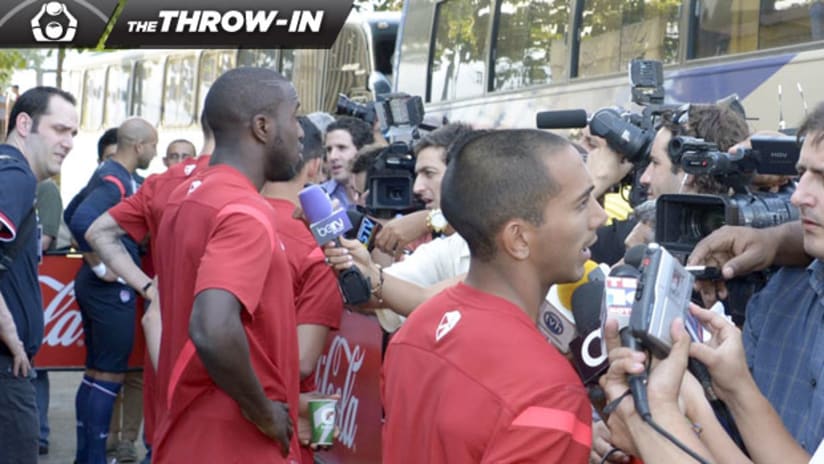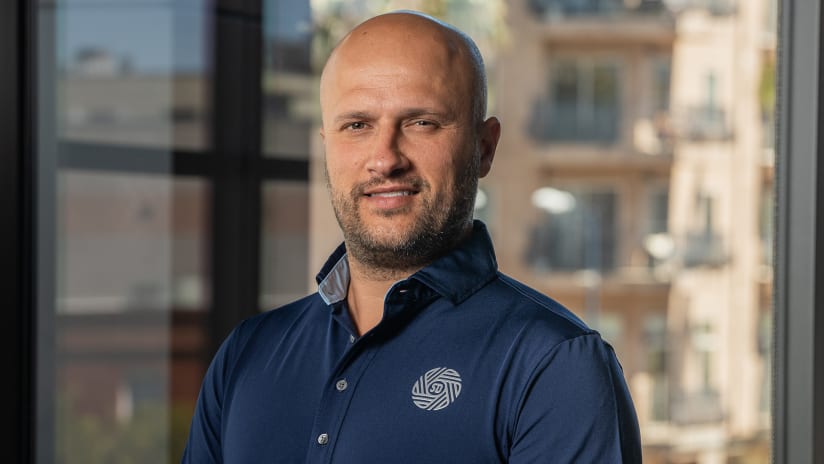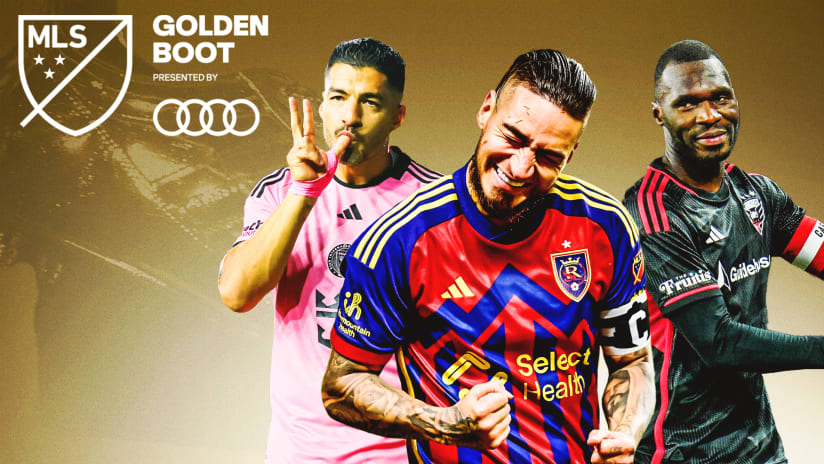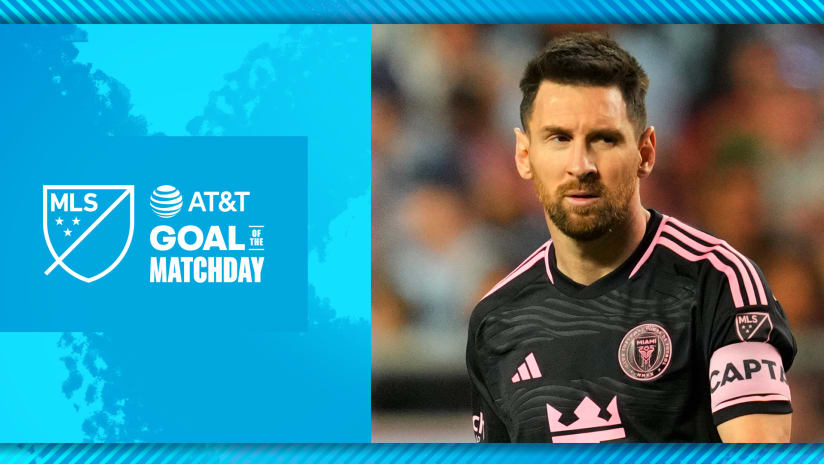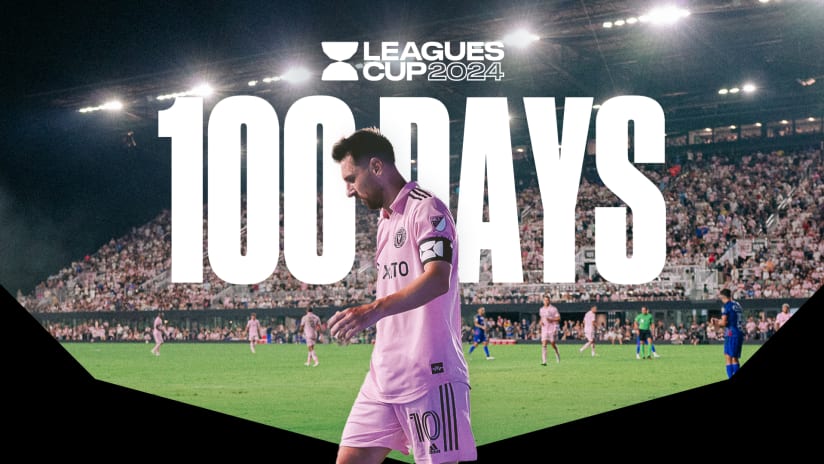In 14 days, everything changed for the US national team. Well, maybe not everything. But enough changed so that the next two months will go down much, much smoother.
Come this fall, when the US are celebrating a seventh straight trip to the World Cup – and yes, that’s a when, not an if – we will most certainly be looking back at the past fortnight as the tipping point.
We can cite a lot of factors. Missing Carlos Bocanegra, the inspirational leader, maybe. Or perhaps coming together at a time when all-time USMNT Mr. Everything Landon Donovan still wasn’t in the picture. Figuring out a way to persevere when as many as six starters were out injured, most certainly.
Those all probably played a major role. But to me, the overarching reason comes down to Brian Straus’ incendiary Sporting News story. Yes, it was simply a piece of journalism – a well-reported one at that. It was not an agenda, as many took it to be. But that didn’t matter.
Instead of being something that very well could have ripped the USMNT apart at the seams, they chose to make it a rallying cry. They won’t admit it, but I believe the story affected them far more than they led on. What Bob Bradley famously used to call “the outside” had penetrated “the inside,” and the players chose to put their heads down and get to work.
READ: Donovan wants back into USMNT, but admits he's way behind
Geoff Cameron went so far to say that “everyone wanted us to lose.” Which is, of course, nonsense. But to think that it didn’t create the “us against the world” mentality, as Charles Boehm so well pointed out earlier this week, is just pure naïveté. Many players say they don’t read what’s written about them. And we all know that’s hogwash. Michael Bradley himself admitted reading Straus’ story before calling out his own teammates for not putting their names to their comments.
But look at what happened in the aftermath of arguably the biggest talking point surrounding the USMNT since Klinsmann was hired 20 months ago. The US survived the toughest stretch of their Hexagonal schedule, and they passed with flying colors. Four points through three games – two of them at the toughest road venues in CONCACAF – is excellent.
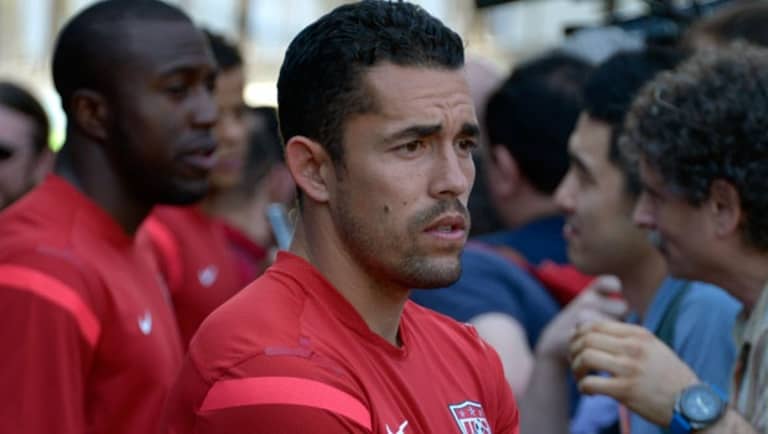
As a professional journalist who's covered the team for nearly a decade, this of course got me going on what role the media play in covering a national team. The nature of Straus’ story wasn’t unique – countries around the world are so used to huge expository pieces that unearth revelations from within team circles that it’s turned countless big-name players into paranoid, walking cliché machines. (And yes, that’s an unfortunate downside.)
But that’s just it. That sort of phenomenon is alien to U.S. Soccer circles. The coaches and players aren’t called out onto the carpet on a regular basis. And as a result, we don’t have enough of a critical soccer culture here in the US.
Herculez Gomez expressed as much shortly before the win over Costa Rica in Colorado last week.
“I love it,” he told reporters. “It's about time. It's about damn time you guys took some interest and you guys started asking some tough questions. I think that shows us growing as a footballing nation, I really do.”
READ: Has the US national team rediscovered its identity?
He’s absolutely right. You look at the biggest footballing nations on the planet, and every move their team makes is cause for a national hysteria. As Gomez himself pointed out, when these sorts of crises occur in Mexico, they’re all that’s discussed on national TV and in the papers.
It was a little more than two years ago when the blowback surrounding harsh discipline for the Mexican national team after a late-night party became such a sensation in the press, it eventually forced then-director of national teams Néstor de la Torre to step down. Or in England, where the backlash surrounding John Terry’s racist acts got him removed as national team captain.
The point is, when the press starts taking risks – questioning the status quo, and truly holding people’s feet to the fire – that’s when we truly start to change as a culture.
“This country needs that exposure,” continued Gomez. “This country needs football to matter.”
Is emboldening the press the answer? No, not on its own. People still need to fill the stadiums and support their local clubs. But we as a culture need to be the ones advancing the conversation. We need to challenge the game, not simply defend it as worthy of our attention. That the first nine minutes of SportsCenter on Tuesday night and Wednesday morning were all Mexico-USA is a big sign of progress. (And granted, “The Worldwide Leader” had a certain financial stake in the game.)
But if we’re going to keep going down the road of becoming a major soccer power, we need to start thinking like one. This was the next step.
Jonah Freedman is the managing editor of MLSsoccer.com. “The Throw-In” appears every Thursday.

